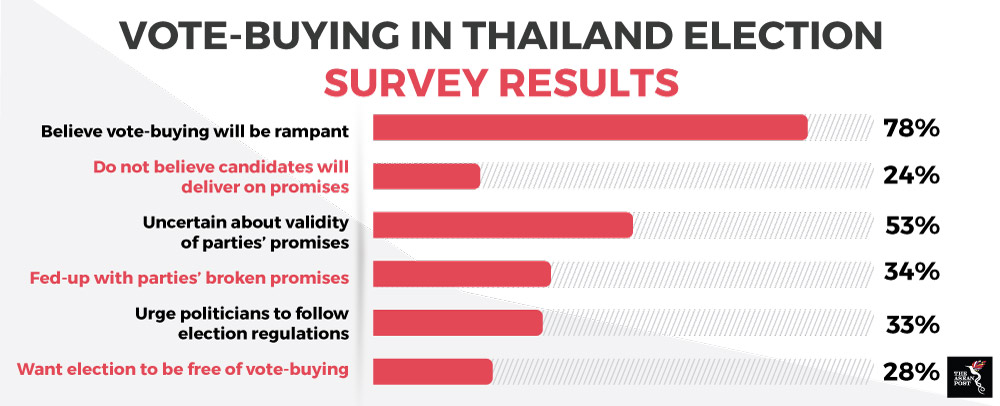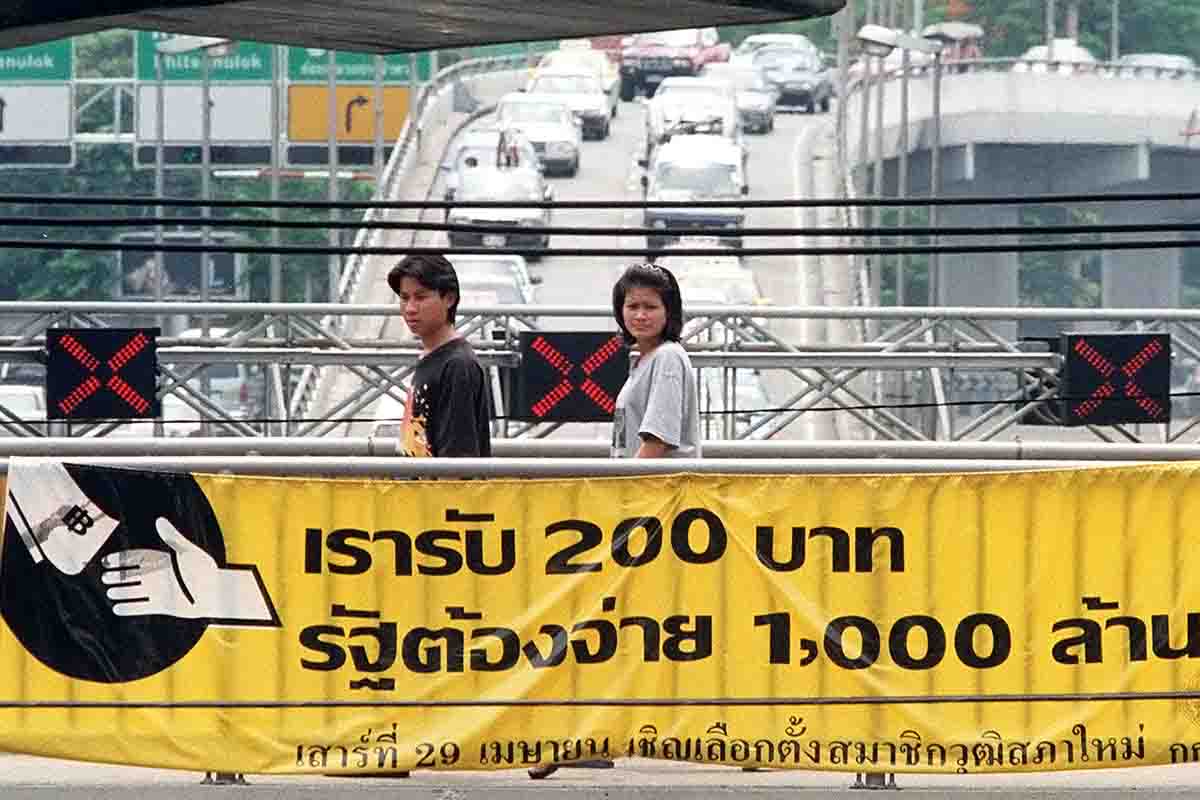Thailand’s latest promised date for its general election is on 24 March this year. While there is no telling whether the election will go ahead or not, it is best to remain optimistic. However, while we can maintain a positive outlook on the election being held as promised this time around, there seems to be another concern plaguing the minds of the voters in the Land of Smiles – vote-buying.
According to a poll conducted by the National Institute of Development Administration (NIDA), more than 78 percent of respondents believe vote-buying will be rampant. A Suan Dusit Rajabhat University survey found that 28 percent of those polled made it clear that they wanted the election to be free of vote-buying.
NIDA surveyed a total of 1,250 people from 23 to 24 January, while the Suan Dusit poll involved 1,132 people and was carried out from 23 to 26 January. Both polls were conducted nationwide.
While the survey samples are relatively small in number compared to Thailand’s more than 69 million people (based on 2017 statistics), it does provide an important glimpse into the issue of vote-buying in Thailand.
Buying votes in Thailand
In a 2002 paper titled “The Market for Votes in Thailand”, Allen D. Hicken, assistant professor at the University of Michigan, analysed certain features of the political environment, chiefly the electoral system and its relationship to vote buying in Thailand.
He argued that Thailand’s multi-seat, multiple vote plurality (MSMV) electoral system provided candidates with strong incentives to favour personal strategies over party-centred strategies. He added that vote buying was particularly attractive to candidates relative to other types of personal strategies, which tended to be costlier or more uncertain than vote buying.
He also noted, however, that the most visible factor in the decline of vote buying during the 2001 elections was more stringent enforcement of campaign rules by the Election Commission (EC). However, even if the EC remains an active and independent agency, it cannot be the sole solution to the problem of vote buying, he explained.
“Enhanced detection and punishment of vote buying, if not accompanied by serious attention to the underlying environment, are problematic. Without deeper structural changes to the political, socioeconomic and cultural factors at the root of vote buying, greater enforcement will merely be a catalyst for greater creativity as candidates and parties work to find ways around the law.
 Source: NIDA and Suan Dusit Rajabhat University
Source: NIDA and Suan Dusit Rajabhat University
It is important to note here that since the previous election in 2014, there have been changes made to the Thai electoral system. The new constitution changes the way votes are cast for the House of Representatives, Thailand's lower house. Previously, voters cast two different ballots: one for constituency seats and the other for party list seats. For the upcoming election, the number of ballots has been reduced to one; with the vote being cast for both, constituency and party list seats.
In 2011, former Finance Minister Korn Chatikavanij from the Thai Democrat Party was quoted as saying that vote buying did happen, but was ineffective. Korn noted that in the 2007 election, a number of old Thai Rak Thai Party members of Parliament in the northeast (known to be loyal to the Shinawatras) had defected to the then new Puea Paendin party. Thai Rak Thai was founded by Thaksin Shinawatra.
“They outspent the People’s Power Party three to one and still lost,” he said.
The People's Power Party is a defunct Thai political party. The party leader was Somchai Wongsawat, the Party Secretary General was Surapong Suebwonglee, and the Party Spokesperson was Kuthep Saikrajarng. Most members of Parliament from the party originally hailed from the Thai Rak Thai and the party was in fact a de facto reincarnation with former prime minister Thaksin Shinawatra as its leader.
“What Thaksin did was to make that connection (between himself and the People’s Power Party) and make it directly relevant to his target group (the voters in the Northeast)” Korn added.
Therefore, based on the accounting of Thailand’s previous elections, there is a very real possibility that vote-buying could happen. Whether or not it is something that voters in Thailand should concern themselves with is another question altogether. As Korn put it back in 2011: “I still believe at the end of the day that even if you sold your vote, it’s still your decision in the ballot box. Simply, we cannot go against the will of the people and no amount of money will help.”
Related articles:
Are the Shinawatras planning a comeback?
Is Prayut forcing the EC's hand?
